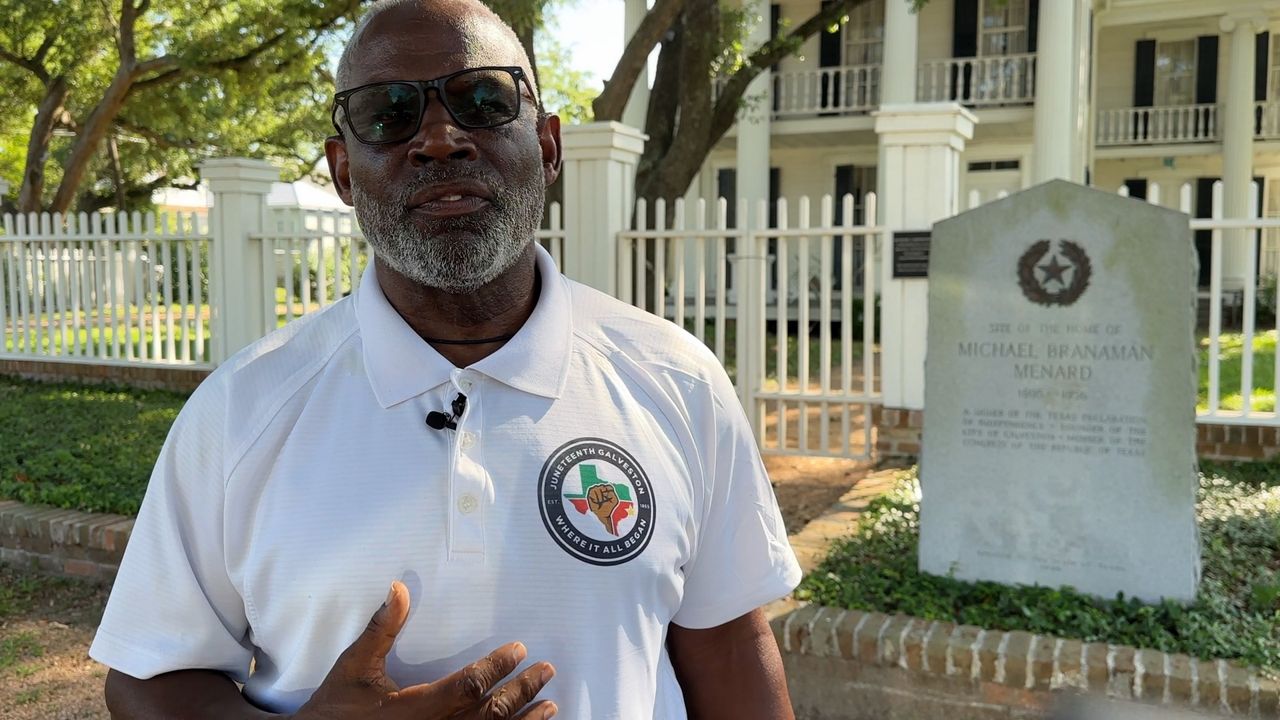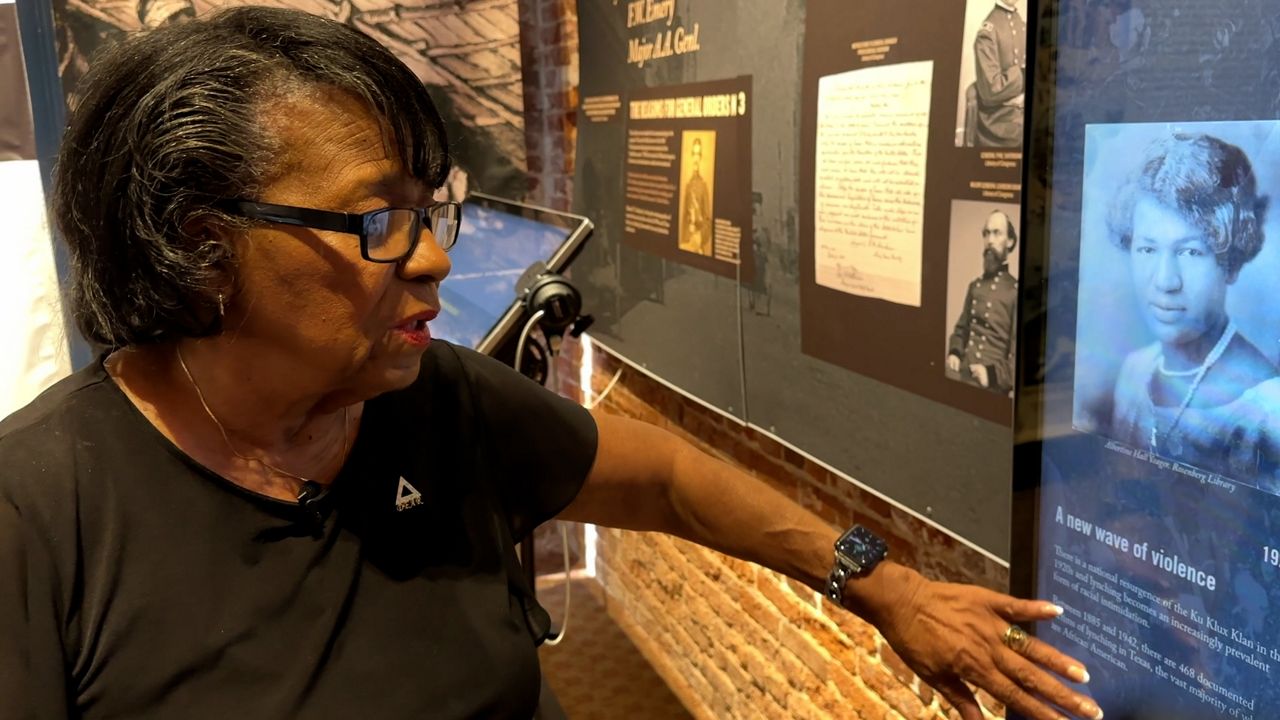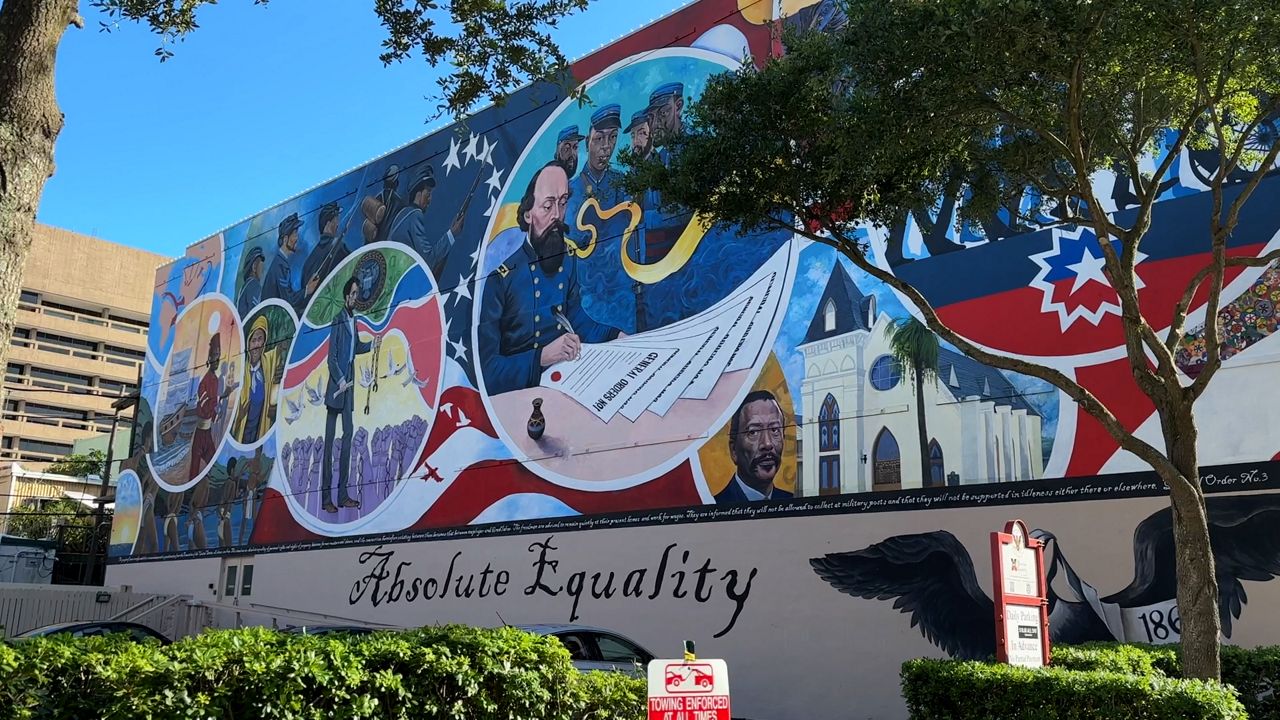GALVESTON, Texas — Galvestonian and longtime educator Lawrence Thomas only has to walk about six blocks to share why Juneteenth is really an everyday conversation for his family.
“My great-grandfather was a slave here, and they told us the slave quarters were upstairs in the back of this house,” Thomas said.

“It’s so important to talk about that because it connects us to the past, especially for my children,” Thomas said. “To know how my grandfather had to fight through all the things that occurred in his life to be where we are in this present time.”
The Thomas’ impact on Texas predates the Civil War and provides a glimpse into how many Black families prospered after being emancipated, taking up key roles in the community as educators, musicians and activists such as his father, Reverend James Thomas.
“Coming from the oldest high school, we were seeking education. We wanted to go far. Galveston was a very educated place,” Thomas said.
In the backdrop of this holiday, a fight rages on regarding how history will be taught across Texas moving forward, which is why fellow Galvestonian Tommie Boudreaux, the Galveston Historical Foundation’s chair of African-American Heritage, says only the truth will help move our nation forward.

“We have to accept the good, bad and the ugly,” Boudreaux said. “It’s not a story that’s easy to tell, but it is a story and it happened in the United States. Freedom day, Jubilee Day, emancipation happened on this island.”
Almost 71 years old, Thomas is still finding new ways to commemorate this watershed moment, including a march throughout the city around the annual holiday. One of the last stops is one of the most iconic: 2201 Strand Street — the site where Union Major General Gordon Granger announced his ancestors were free.

“Everyone should embrace this moment to know it’s all in the past, to celebrate that we all move forward in the same direction, and I think that’s the most important thing,” Thomas said



